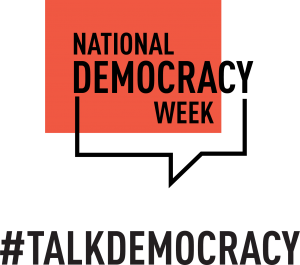 The second in our series of articles for National Democracy Week 2018. Today we look at how democracy is enacted in a Sudbury school. For more articles about Democracy and Children see our campaign with The Phoenix Education Trust here. We’ll be publishing new articles every day this week, so keep a look out for more takes on this important topic.
The second in our series of articles for National Democracy Week 2018. Today we look at how democracy is enacted in a Sudbury school. For more articles about Democracy and Children see our campaign with The Phoenix Education Trust here. We’ll be publishing new articles every day this week, so keep a look out for more takes on this important topic.
Here on our website and in our booklets we talk about every member of the school community, staff and students, each having an equal voice in all decisions but how does that work in practise? Where do these decisions get made and how can a 5 year old that just joined the school have the same voice as a staff member that helped to found it?
East Kent Sudbury School will be a democratic school, which means it is a community governed by and for itself. And the place where decisions get made is the School Meeting. Meetings take place once a week and all school meeting members have the same equal weight vote. It’s a direct democracy, which means that everyone has a say on each and every issue that’s brought before the meeting. It also means that no one person has more power than anyone else, no one is elected to make decisions on the community’s behalf, we all decide together. Sometimes the School Meeting might create a committee with the power to make decisions over certain things like a ‘School Trips Committee’ but that committee still has to report back to the School Meeting which is always the ultimate authority.
The kinds of things that typically get brought before the School Meeting fall roughly into one of these categories:
- Proposal for a new rule or change to existing one
- Proposal for an activity, trip or a request for funds for an idea
- A complaint that has been referred by the Judicial Committee
Because the School Meeting is also in charge of managing the business of the school, it also handles things like the annual budget, staff contracts and salaries and other important strategic decisions. Don’t small children get bored discussing things like budgets or staff requirements? Well sometimes yes, but it’s a participatory democracy, attendance at every meeting is not compulsory. That said it is well understood that if you don’t go and put your views forwards you have to live with the decision that’s made there. The kids at our summer camp last year found that out very quickly. When the older boys didn’t come to the camp meeting one day and the quiet hour was lowered to allow younger children to get to sleep earlier they were gutted. But instead of complaining about it to the adults, they came in force to the next meeting and got it pushed even later than the original time for the last night.
The agenda is published in advance and you can often tell what’s being discussed by who’s in the room, students are very good at getting there when its about something they care deeply about. Often students take an ever greater interest in the meeting as they get older. There comes a point where they want to take responsibility for the school business, regardless of their own self interest in the agenda items, and then they start coming every week. The point is less that everyone attends every meeting to cast a vote on every decision, but rather that those who have something to say, do come and have their say.
If a student chooses not to attend the meetings do they really have an equal voice? It’s an interesting question, and one I’ve considered a lot. The students I met at Sudbury Valley School knew exactly where to go and how to exercise their voice, whether they chose to every week or just sometimes. They know that their voice has power and that for me is key.
Find out more about the School Meeting at Sudbury Valley School in this video.
[embedyt] https://www.youtube.com/watch?v=jg9lf7wyQRo[/embedyt]
Hear 3 past School Meeting Chairmen of the at Alpine Valley School talk about what an important aspect of school life it is, in this AVS podcast.
[embedyt] https://www.youtube.com/watch?v=6sQH-TyTLO4[/embedyt]
